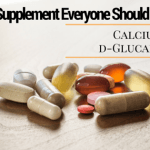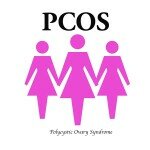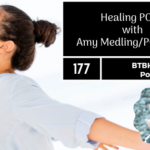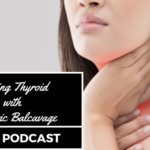
10% of women in their reproductive years experience symptoms that are congruent with PCOS. This syndrome can come in many different forms. It leads to hormonal imbalances, metabolic concerns, and infertility issues.
It is important to understand how normal hormone fluctuations lead to both ovulation and shedding of the endometrial lining of the uterus (see chart below). Estrogen increases lead to the development of an egg each month. Each month the progesterone increases from Day 14-28 to build the lining up. With PCOS, we see an increase in the number of cysts on the ovaries but they are not releasing eggs. We also see an increase in testosterone that leads to increased acne, body hair, and male characteristics. There is a problem with insulin and blood sugar regulation that leads to metabolic concerns and weight gain.
It is important to realize that not all PCOS is the same. There are different causes and reasons from insulin resistance to inflammation. If you are dealing with PCOS it is important to see a specialist that can approach it with a comprehensive and individual approach.

4 Types of PCOS
1) Insulin-Resistant PCOS
This is the classic type of PCOS, and by far the most common. High insulin and leptin impede ovulation and stimulate the ovaries to make testosterone. Insulin resistance is caused by sugar, obesity, smoking, trans fat, and environmental toxins.
Is this you? You have been told that you are borderline diabetic, or you had an abnormal glucose tolerance test. You probably have elevated insulin, and you may also have elevated LH (luteinizing hormone). You are probably overweight, although you may be normal weight. Normal-weight insulin-resistance can occur in the years following dieting or eating disorder.
Treatment ideas: You need to quit sugar and/or lose weight. Please also consider intermittent fasting, which works well to improve insulin sensitivity. Best supplements for insulin resistance are magnesium, lipoic acid, inositol, and berberine. The Pill is not a treatment for this type (or any type) of PCOS because it impairs insulin sensitivity. Improvement for Type 1 PCOS is slow and gradual over 6-9 months. Please see my Insulin Resistance post.
2) Pill-Induced PCOS or Post-Pill PCOS
The birth control Pill suppresses ovulation. For most women that is a temporary effect, and ovulation will usually resume fairly soon after the Pill is stopped. But for some women, ovulation-suppression can persist for months or even years. During that time, it is not unusual to be given the diagnosis of PCOS. Some experts deny the existence of Pill-induced PCOS, but it is very real. It is the second most common type of PCOS that I see in clinic. I have spoken to many other clinicians who are seeing the same thing. We desperately need more research into it.
Is this you? You had regular periods before starting the Pill, although you may have hadacne. You probably now have elevated LH on blood test, although you may have normal LH, and high-normal prolactin.
Treatment ideas: If your LH is elevated, the best herbal treatment is Peony & Licorice combination. I know Peony & Licorice is difficult to access outside of Australia, but hopefully that will change in near future. If your prolactin is high-normal, then the best herbal treatment is Vitex (also called chaste tree or chaste berry). Do not use Vitex if your LH is elevated. Vitex stimulates LH so it will make things worse. Indeed, many of my PCOS patients report feeling worse on Vitex.
Both Peony and Vitex work on your pituitary-ovarian axis, and they are powerful herbs. I recommend you do not use them too soon or for too long. Do not take them if you are a teenager, or if you have just come of the Pill. Give yourself at least 3-4 months off the Pill. Peony and Vitex should not be used for more than 10 months in a row. They should notneed to be used that way. If they are the right herbs, they will work fairly quickly (within 3-4 months). And then, your periods should stay regular after you stop the herbs. You should not take licorice if you have high blood pressure. Please seek professional advice.
3) Inflammatory PCOS
Inflammation—or chronic immune activation—results from by stress, environmental toxins, intestinal permeability and inflammatory foods like gluten or A1 casein. Inflammation is a problem for PCOS because it impedes ovulation, disrupts hormone receptors, and stimulates adrenal androgens such DHEA and androstenedione.
Is this you? You have other symptoms of immune-dysfunction such as recurring infections, headaches, joint pain or skin conditions. Your blood test shows inflammatory bio-markers such as vitamin D deficiency, abnormal blood count, elevated C-RP, thyroid antibodies, or gluten antibodies. You may have elevated DHEA or androstenedione, and a positive urine test for intestinal permeability.
Treatment ideas. Reduce stress and exposure to environmental toxins like pesticides and plastics. Eliminate inflammatory foods such as wheat, dairy, and sugar. Treat intestinal permeability with zinc, berberine, and probiotics. Supplement magnesium because it is anti-inflammatory and normalises adrenal hormones (HPA axis). Improvement is slow and gradual over 6-9 months.
4) Hidden-Cause PCOS
This is the ‘simpler-than-you-think’ type of PCOS. Fairly often (at least once per week) I encounter a PCOS patient who does not meet any of the criteria for the first 3 types of PCOS. These are my favourite cases, because it usually means that there is one simplething that is blocking ovulation. Once that single thing is addressed, this type of PCOS resolves very quickly, usually within 3-4 months. Common hidden-causes of PCOS include:
– Soy, because it is anti-estrogen and can block ovulation in some women.
– Thyroid disease, because your ovaries need T3 thyroid hormone.
– Vegetarian diet, because it causes zinc deficiency, and your ovaries need zinc.
– Iodine deficiency, because your ovaries needs iodine. Please be careful with iodine supplementation. Read more at my iodine post.
– Artificial sweeteners, because they impair insulin and leptin signaling.
– Too little starch in your diet, because your hormonal system needs Gentle Carbs.
This post is written by Dr Lara Briden, and originally appeared on her blog.
Dr Briden is the author of Period Repair Manual: Natural Treatment for Better Hormones and Better Periods, available on and iTunes
Thank you Dr. Lara Briden for allowing us to use this excerpt from your article.
Dr. Meaghan and Wendy







